Hacktivist Group Targets Iran’s Government Organization
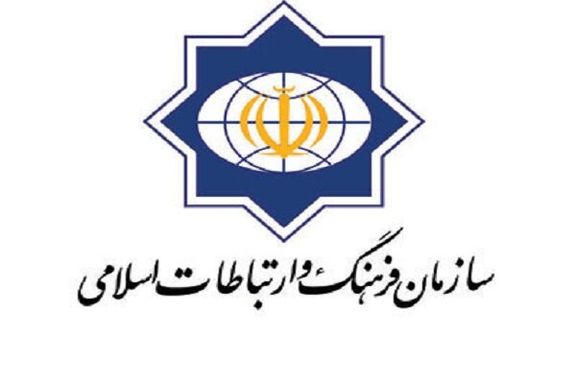
Iranian hacktivist group ‘Uprising till Overthrow' says it has hacked the website and portals of Iran’s Islamic Culture and Communication Organization.

Iranian hacktivist group ‘Uprising till Overthrow' says it has hacked the website and portals of Iran’s Islamic Culture and Communication Organization.
The hacking group, reportedly affiliated with the Albania-based opposition Mujahideen-e Khalq (MEK) group, said on Sunday that they put photos of the leaders of the group Massoud and Maryam Rajavi on the organization’s website.
The website of the organization, run under the Ministry of Culture and Islamic Guidance, is down at the moment, therefore it is not clear for how long it was displaying photos of the MEK leaders and slogans in support for the group.
The hacktivist group said that it has also disabled six websites and systems, 44 servers and two internal administrative systems of the state organization.
In a video released by the hackers, they claimed they have obtained 200,000 documents, including letters and directives from secret correspondence with the president’s office, identities of the organization’s employees abroad, and list of the incomes of its personnel.
In early June, the group hacked into and deactivated over 5,000 surveillance cameras and 150 websites and online services of Tehran Municipality.
Last week, a hacking group called Predatory Sparrow targeted three of Iran’s major steel plants by a cyberattack, purportedly forcing one of them to halt production.
The Sunday cyberattack came a few days after Israel -- which is widely believed to have waged cyber war against Iran's nuclear facilities and other infrastructure -- confirmed that an Iranian hacker group has recently targeted several travel booking sites of an Israeli company and stolen personal information of more than 300,000 Israelis.
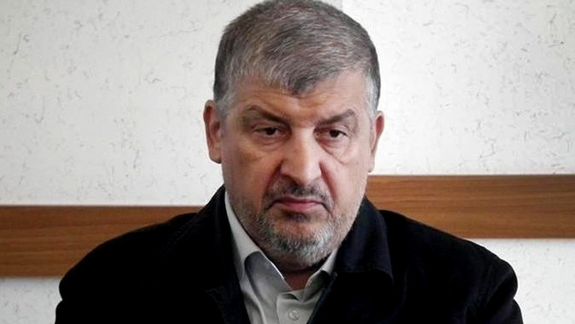
A hardliner politician in Iran has said “We are in a cyberwar against the Zionist enemy,” and everyone should take this into account, ILNA reported on Sunday.
Mansour Haqiqatpur, a self-styled “principlist” or hardliner told ILNA that " We should allow people's hatred of Israel to manifest itself."
He added, “Whether we make agreements or not, our contradictions with Israel will remain in place. We certainly had problems with them and will continue to have,” the former member of the Revolutionary Guard’s Quds (Qods) Force, turned politician said.
But what reflected the true thinking of hardliners in Iran, loyal to Supreme Leader Ali Khamenei and his ideology was Haqiqatpur’s statement that “If one day we come to feel we have no problems with Israel, that day will signify the decline of the Islamic Republic.”
Since its establishment in 1979, the clerical regime in Iran has kept one policy consistent, and that is its anti-Israel and anti-US ideology, the politician’s statement shows. On many occasions, Iranian officials have called for Israel’s destruction and have marshalled huge resources to build a network of militant allies and proxies to threaten the Jewish state. However, the domestic rationale for this policy is often not understood.
Khamenei almost in every one of his 1,800 speeches since assuming power in 1989 has used the word “the enemy”, meaning first Israel and then the United States. The concept of permanently facing an enemy or enemies justifies the perpetuation of an authoritarian political system that now increasingly resembles a totalitarian regime.
Haqiqatpur went on to say that “We should be ready for an all-out confrontation with soft power, semi hard power and hard power with Israel. The leader of the revolution [Khamenei] has announced a date for Israel’s fall and we should try to meet that deadline.”
A few years ago, Khamenei said Israel must be destroyed in 25 years and the government even set up a countdown clock in Tehran. Many Iranian make fun of the anti-Israel rhetoric and the clock, but the regime remains serious in repeating its threat.
Asked about what the Islamic Republic should do at this point, the former IRGC officer said that everyone should know Iran is in a cyberwar with Israel and all entities and institutions should reinforce their cyber defenses.
Israel is believed to have started a covert war against the Islamic Republic that intensified in July 2020 with a mysterious attack on its top=secret nuclear facility in Natanz where an explosion destroyed a building producing uranium enrichment centrifuges.
The attacks continued with the highly complex assassination of Iran’s top nuclear operative Mohsen Fakhrizadeh in November 2020, using a remote-controlled heavy gun near Tehran.
Mysterious attacks have continued against nuclear and other sensitive targets. Since May several Revolutionary Guard officials have been killed ot died mysteriously in Iran, prompting officials to accuse Israel of running a covert campaign.
This has led to an unprecedented reshuffling and firing of top-level intelligence officials, including the chief of a special force protecting Khamenei and his family. Top leaders have admitted that Israel has infiltrated Iranian government institutions and have vowed to retaliate by cyberwar and any other means.
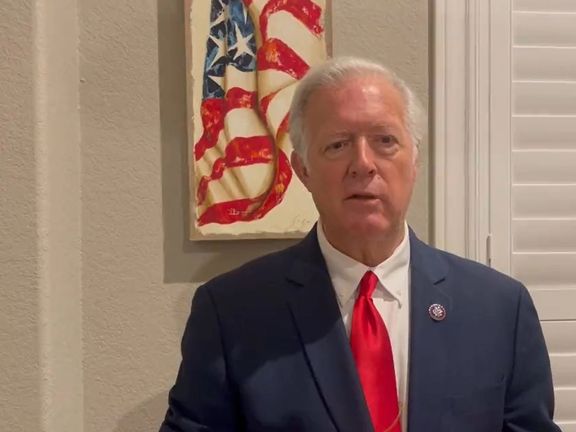
A US lawmaker has warned of “immanent dangers” of a deal between Iran and Belgium over the expatriation of prisoners, saying such an arrangement makes Europe and the Americas unsafe.
Texas Republican representative Randy Weber released a video on his twitter account on Saturday, calling on his fellow congresspeople from both sides of the aisle to raise their voices against the “so-called” arrangement and “do everything to stop appeasing the ayatollahs.”
“I’m shocked to find out Belgian government has cut a deal with world’s top state-sponsor of terror and plans to send Iranian terrorists back to Iran to plot more terroristic acts,” he said, warning that it will “make Europe and the Americas unsafe and ripe for more terrorism at the hands of the Iranian regime.”
“I want to urge the president of Belgian Chamber of Representatives and all parliamentarians to reject any language in the bill that will allow terrorists to go back to their terrorist nest,” Weber said, adding that if approved, this “absurd” and “shameful” deal will “turn Belgium into a safe haven for the mullahs’ terrorism.”
The draft law will potentially result in sending back Iranian diplomat Asadollah Assadi, who was sentenced to 20 years in prison for masterminding a failed terrorist attack in Europe.
An informed source told Iran International that two Belgian citizens are currently in prison in Iran. One of the two is apparently an Iranian-Belgian professor of Louvain University. It is not clear who the other Belgian is.

Veteran statesman Henry Kissinger says the trouble with the talks to revive Iran’s nuclear deal is that it is very dangerous to go back to a deal that was inadequate to begin with.
In an interview with British magazine The Spectator published on Saturday, Kissinger, who is a former US Secretary of State and National Security Advisor, added that any modification in the 2015 accord “makes it apparently more tolerable to the adversary."
He noted that if such a deal is reached, the situation of the region might become “much more explosive” because “particularly Israel – Iran’s chief enemy – but also Egypt and Saudi Arabia – whom they see as principal competitors – were going to be driven into reactions.”
Saying that there is really “no alternative to the elimination of an Iranian nuclear force,” Kissinger emphasized that there is “no way you can have peace in the Middle East with nuclear weapons in Iran, because before that happens, there is a high danger of pre-emption by Israel, because Israel cannot wait for deterrents. It can afford only one blow on itself. That is the inherent problem of the crisis.”
“I was extremely doubtful about the original nuclear agreement. I thought Iran’s promises would be very difficult to verify, and that the talks really created a pattern in which the nuclear build-up might have been slowed down a little but made more inevitable,” he said.
Iran’s media is filled with contradictory comments on the outcome of indirect talks with Washington in Qatar this week over the fate of the Vienna negotiations, which have been stalled for months.
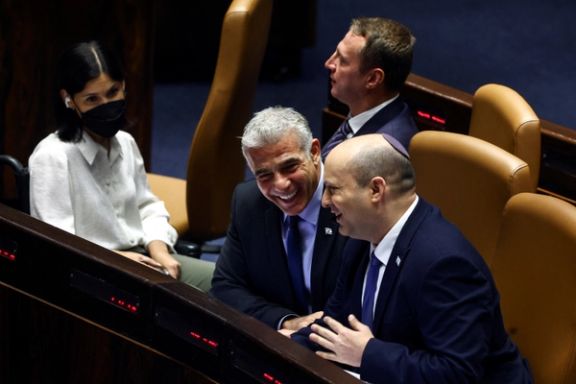
Israel’s Channel 12 television has reported that in an air attack on targets in western Syria Saturday an important shipment of Iranian weapons was destroyed.
Meanwhile, the new Israeli prime minister Yair Lapid in his first televised speech said, “the Iranian threat is the greatest threat facing Israel.”
The Syrian military said on Saturday that several missiles hit positions in the west of the country south of Tartus near the border with Lebanon, but claimed the targets were poultry farms. The UK-based Syrian Observatory for Human Rights said the animal husbandries are believed to be used by Iran-backed Lebanese group Hezbollah for military purposes.
Channel 12 in its report Saturday evening said that a shipment of weapons from Iran, possibly air defense systems that were unloaded a week earlier were the target of the Israeli attack. Earlier Israeli officials had said that Iran was working to beef-up Syria’s air defenses, obviously to protect its forces and Hezbollah, since Israel is not interested in attacking the Syrian military per se.
Israel has conducted hundreds of attacks against Iranian and Lebanese Hezbollah targets in Syria since early 2017, but it routinely remains silent about acknowledging any specific operation.
Last December, Israel twice attacked Syria’s Mediterranean port of Latakia destroying large amounts of material Syria said at the time. Photos published showed massive fires and damage in the port area.
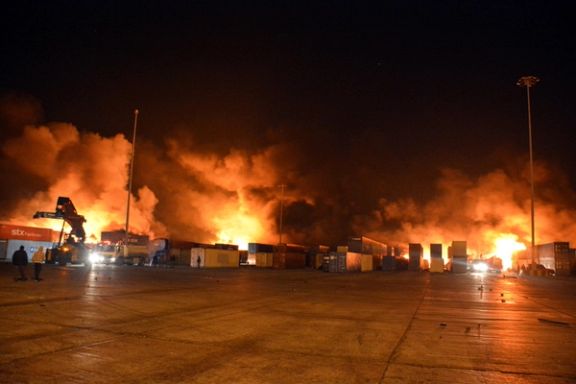
Russia, which had undisputed military sway in Syria, apparently had secret understandings with Israel not to interfere against Israel’s strikes against Iranian targets, usually weapons shipments and depots intended for Hezbollah and for building up a presence on the Syrian side of the Israel’s norther border.
The picture of the Russia-Israel-Iran triangle is less clear since the invasion of Ukraine and reports that Moscow has been reducing its military presence in Syria. However, Israeli attacks have continued.
Lapid in his Saturday address made it clear that Israel’s assessment of the Iranian threat will remain the same in the new government. “We believe that the Iranian threat is the gravest threat facing Israel. We’ll do whatever we must to prevent Iran from acquiring a nuclear capability, or entrenching itself on our borders,” he said.
He went on to renew Israel’s customary warning to enemies: “I stand before you at this moment and say to everyone seeking our demise, from Gaza to Tehran, from the shores of Lebanon to Syria: don’t test us. Israel knows how to use its strength against every threat, against every enemy.”
The previous government headed by Naftali Bennet, in which Lapid occupied the key post of foreign minister, advanced a new policy dubbed the “Octopus Doctrine’, stipulating that it will not just be content with hitting Iran’s “tentacles”, meaning proxies, and will aim at the head of the octopus.
This policy perhaps manifested itself in repeated attacks against sensitive targets and key military and intelligence officials inside Iran. The offensive has rattled Islamic Republic’s establishment, which began purging intelligence and counter-intelligence officials in June.
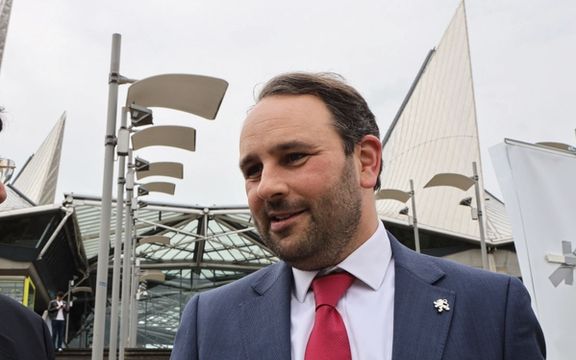
A draft law in Belgium, which could lead to the release of an Iranian diplomat in prison for planning a terror attack 4 years ago, has raised strong opposition.
The draft law, which has been sent to parliament and put on the agenda of the foreign affairs committee stipulates a prisoner exchange agreement with Iran, India, and the United Arab Emirates (UAE).
An informed source told Iran International that two Belgian citizens are currently in prison in Iran. One of the two is apparently an Iranian-Belgian professor of Louvain University. His case was mentioned a few years ago by the chancellor of Tehran University, Mahmoud Nili. Nili said the university had stopped its exchanges with Tehran University due to his arrest but did not name him. It is not clear who the other Belgian is.
Critics say the bill’s approval would pave the way for the repatriation of Asadollah Asadi, an Iranian diplomat serving a 20-year sentence in Belgium for “attempted murder and involvement in terrorism.”
Assadi, 50, a former attaché at the Iranian embassy in Austria, was convicted of plotting to bomb a gathering of the exiled opposition group Mujahedin-e Khalq Organization (MEK) near Paris on June 30, 2018.
Darya Safai, an expatriate Iranian dentist and member of the Belgian Parliament, in a video message Friday protested against the government’s decision to rush a prisoner exchange treaty with Iran.
Safai said she and some other lawmakers have demanded an answer from the minister of justice, Vincent Van Quickenborne, but have not been offered a convincing answer.
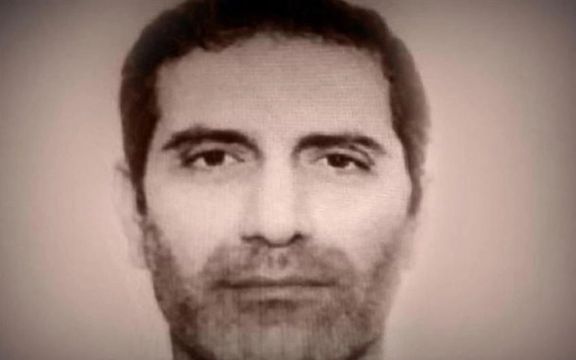
“We will register guarantees regarding the rule of law, the execution of sentences and human rights, because our country has a strong international reputation in this area and we must uphold that reputation,” Van Quickenborne has said regarding the proposed law.
Safai told Iran International that the bill does not exclude those in prison for terrorist activities and will therefore pave the way for the release of Iranians involved in terrorism in Belgium in the future. “My life and that of my husband, children and so many others are in danger and that is why I ask for your attention,” Safai said in her message.
Another Belgian lawmaker, Michael Freilich, has also questioned the government over its “urgent” prisoner exchange plans. “Why does this all have to be so fast?” he asked the Parliament. “I am strongly opposed to any deal to release convicted terrorists from jail.
Let's make it clear: We do not negotiate with terrorists!” he tweeted in May regarding Iran’s demand for Asadi’s freedom.
According to Brussels Times, if passed, the law would ensure that Iranians convicted in Belgium can serve their sentences in their home country, and vice versa.
“Asadi will not remain in prison even for one day [in Iran],” Safai said, adding that Iranian authorities will welcome him home with flower garlands when he gets back.
There is a possibility that the agreement would lead to Asadi’s exchange with Swedish-Iranian professor Ahmadreza Djalali(Jalali), Brussels Times sais on Saturday.
Djalali was arrested during a working visit to Iran six years ago. He was sentenced to death in October 2017 on charges of spying for Israel.
Amnesty International released a detailed research and analysis paper in May to prove that Iranian authorities were threatening to execute Djalali to compel Belgium and Sweden to hand over Asadi and Hamid Nouri who is in prison in Sweden for involvement in mass execution of prisoners in 1980s, and “to deter them and others from future prosecutions of Iranian officials”.